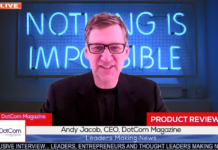Digital campaigns are a cornerstone of modern marketing strategies, designed to leverage digital channels and platforms to achieve specific goals. In a world where consumers increasingly rely on the internet for information, entertainment, and shopping, digital campaigns offer businesses the opportunity to reach their target audience effectively. The essence of digital campaigns lies in their ability to create engaging content that resonates with users, ultimately driving conversions and fostering brand loyalty. As businesses navigate the complexities of the digital landscape, understanding the nuances of digital campaigns becomes essential for success.
At its core, a digital campaign involves a series of coordinated marketing efforts that utilize various digital channels to achieve a unified goal. This could range from increasing brand awareness to generating leads or driving sales. The success of digital campaigns often hinges on their ability to integrate different tactics, such as social media marketing, email marketing, search engine optimization (SEO), content marketing, and pay-per-click (PPC) advertising. Each of these components plays a vital role in building a cohesive strategy that captures the attention of the target audience and motivates them to engage with the brand.
Developing a successful digital campaign starts with clear objectives. Defining what the campaign aims to achieve is crucial, whether it’s boosting website traffic, increasing social media followers, or launching a new product. These objectives should be specific, measurable, achievable, relevant, and time-bound (SMART). Establishing SMART goals allows marketers to track progress and evaluate the effectiveness of their efforts throughout the campaign. Additionally, aligning these goals with overall business objectives ensures that digital campaigns contribute to the larger vision of the organization.
Understanding the target audience is another critical aspect of digital campaigns. Marketers must conduct thorough research to identify who their ideal customers are, what their needs and preferences are, and how they interact with digital platforms. Creating audience personas can be an effective way to visualize the characteristics and behaviors of different segments of the target market. By tailoring messaging and content to resonate with these personas, businesses can create more impactful digital campaigns that drive engagement and conversions.
Content is the backbone of any digital campaign. High-quality, relevant content is essential for capturing the attention of the audience and conveying the campaign’s message effectively. This content can take various forms, including blog posts, videos, infographics, social media posts, and email newsletters. The key is to ensure that the content aligns with the campaign’s objectives and speaks directly to the target audience’s interests. Additionally, leveraging storytelling techniques can enhance the emotional connection between the audience and the brand, making the content more memorable.
Search engine optimization (SEO) plays a vital role in enhancing the visibility of digital campaigns. By optimizing content for search engines, businesses can increase their chances of appearing in relevant search results, driving organic traffic to their websites. This involves conducting keyword research to identify the terms and phrases that potential customers are using to search for products or services. By strategically incorporating these keywords into content, metadata, and on-page elements, marketers can improve their search rankings and attract more visitors to their sites.
Social media platforms are powerful tools for executing digital campaigns. With billions of active users, platforms like Facebook, Instagram, Twitter, and LinkedIn provide an opportunity to reach a vast audience. Developing a social media strategy that outlines how to engage with users, share content, and promote the campaign is essential. Utilizing paid advertising options on these platforms can also amplify reach and target specific demographics based on interests, behaviors, and location.
Email marketing remains one of the most effective channels for digital campaigns. Building and segmenting an email list allows businesses to send personalized messages to their audience, nurturing leads and driving conversions. Crafting compelling email content with clear calls-to-action can encourage recipients to take the desired action, whether it’s visiting the website, signing up for an event, or making a purchase. Additionally, A/B testing different email formats, subject lines, and content can provide valuable insights into what resonates best with the audience.
Data analytics is a fundamental aspect of digital campaigns. By tracking key performance indicators (KPIs) such as website traffic, conversion rates, and engagement metrics, marketers can assess the effectiveness of their efforts in real-time. Utilizing tools like Google Analytics, social media insights, and email marketing analytics enables businesses to make data-driven decisions and optimize their campaigns for better results. Regularly reviewing performance metrics allows for timely adjustments to strategies, ensuring that the campaign remains aligned with its objectives.
Budgeting is an integral part of planning digital campaigns. Establishing a clear budget helps allocate resources effectively across different channels and tactics. It’s essential to consider costs associated with content creation, advertising, software tools, and personnel. Marketers should also monitor spending throughout the campaign to ensure that it stays within budget and delivers a positive return on investment (ROI).
Integration across channels is key to maximizing the impact of digital campaigns. A successful campaign should create a seamless experience for the audience, regardless of the platform they interact with. This means ensuring that messaging, branding, and content are consistent across websites, social media, emails, and any other channels used. An integrated approach enhances brand recognition and fosters trust, making it easier for audiences to engage with the campaign.
Crisis management is an essential consideration in digital campaigns. Given the fast-paced nature of social media and the internet, negative feedback or unforeseen issues can arise at any time. Having a plan in place to address potential crises is crucial. This includes monitoring brand mentions, responding promptly to negative comments, and maintaining transparency with the audience. Proactive communication can help mitigate damage and preserve the brand’s reputation.
After the campaign concludes, conducting a thorough evaluation is vital. This involves analyzing the data collected throughout the campaign to determine what worked, what didn’t, and why. Gathering feedback from team members and stakeholders can provide additional insights into the campaign’s execution. Documenting these findings can serve as a valuable resource for future campaigns, helping to refine strategies and improve outcomes.
Furthermore, staying current with digital marketing trends and best practices is essential for ongoing success. The digital landscape is constantly evolving, with new technologies, platforms, and consumer behaviors emerging regularly. Marketers should commit to continuous learning and adaptation, exploring new tools and strategies to enhance their digital campaigns. This willingness to innovate can lead to more effective approaches and a competitive edge in the marketplace.
Building relationships with influencers and industry leaders can also amplify the reach of digital campaigns. Collaborating with influencers who resonate with the target audience can create authentic connections and drive engagement. Influencer partnerships can take various forms, such as sponsored content, social media takeovers, or collaborative events. By leveraging the influence of these individuals, brands can tap into new audiences and enhance their credibility.
Incorporating user-generated content (UGC) into digital campaigns can further strengthen audience engagement. Encouraging customers to share their experiences with the brand through photos, testimonials, or social media posts can create a sense of community and authenticity. Featuring UGC in marketing materials not only showcases real-life use cases but also fosters a sense of belonging among customers, motivating them to participate and contribute.
Additionally, personalization is a powerful strategy within digital campaigns. Tailoring content and messaging based on user behavior, preferences, and demographics can significantly enhance the effectiveness of the campaign. Personalized emails, targeted ads, and customized content experiences make audiences feel valued and understood, increasing the likelihood of engagement and conversions. Investing in marketing automation tools can facilitate this level of personalization by enabling marketers to segment their audience and deliver relevant content at scale.
In summary, digital campaigns are an essential element of contemporary marketing strategies, offering businesses the opportunity to connect with their audience in meaningful ways. By establishing clear objectives, understanding the target audience, creating compelling content, and leveraging various digital channels, marketers can develop effective campaigns that drive engagement and achieve desired outcomes. The integration of data analytics, budgeting, crisis management, and ongoing evaluation ensures that digital campaigns are well-structured and adaptable. As the digital landscape continues to evolve, embracing innovation and staying attuned to trends will be key to achieving sustained success in digital marketing. Ultimately, effective digital campaigns can foster lasting relationships with audiences, enhance brand loyalty, and contribute to the overall growth and success of the business.

















